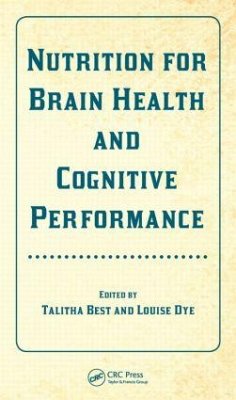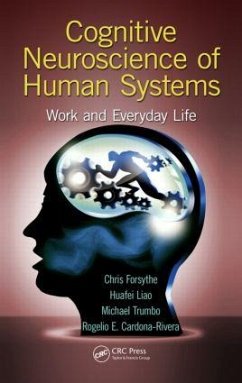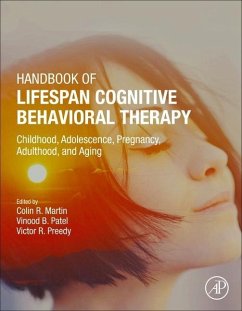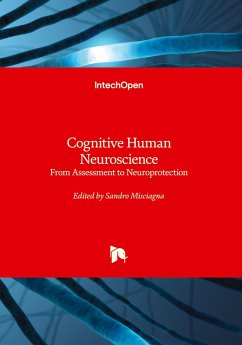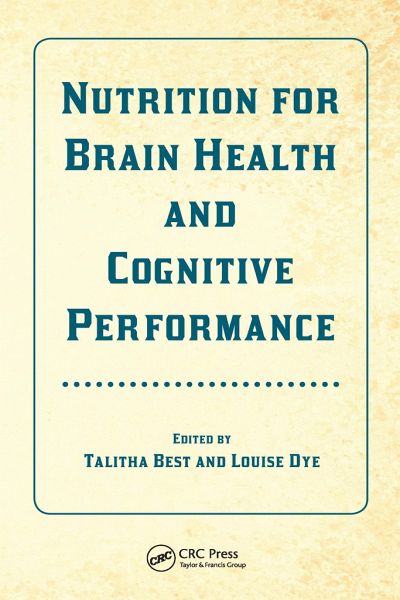
Nutrition for Brain Health and Cognitive Performance
Versandkostenfrei!
Versandfertig in 1-2 Wochen
62,99 €
inkl. MwSt.
Weitere Ausgaben:

PAYBACK Punkte
31 °P sammeln!
Public awareness of the role diet plays in brain function has been steadily increasing. This has led to significant development of new products, dietary supplements, functional foods, nutraceuticals and public health recommendations for maintaining brain function. Nutrition for Brain Health and Cognitive Performance presents a detailed and innovative scientific summary of nutrition-cognition research to provide valuable information regarding nutrition and lifestyle choices for cognitive health. Internationally recognised scholars along with the next generation of researchers have contributed c...
Public awareness of the role diet plays in brain function has been steadily increasing. This has led to significant development of new products, dietary supplements, functional foods, nutraceuticals and public health recommendations for maintaining brain function. Nutrition for Brain Health and Cognitive Performance presents a detailed and innovative scientific summary of nutrition-cognition research to provide valuable information regarding nutrition and lifestyle choices for cognitive health. Internationally recognised scholars along with the next generation of researchers have contributed chapters that present a valuable resource for health professionals, teachers, researchers and the general public. The book critically reviews the evidence surrounding the impact of dietary patterns and nutrition on brain function and cognitive performance. It covers diverse topics such as: Innovative new technologies that assess brain function Tools for measuring mood and its relation to nutrition How a diet rich in fruits and vegetables coupled with low consumption of meats can prevent cognitive decline in ageing adults Effects of glucose, omega 3s, vitamins and minerals, nutraceuticals and flavonoids on cognitive performance Cognitive benefits of herbal extracts such as ginseng, ginkgo biloba and green tea Use of technology such as neuroimaging and noninvasive brain stimulation (NBS) to capture nutrition effects on cognition and brain function Presenting state-of-the-art scientific evidence, challenges, and potential applications within this exciting field, the book promotes and extends the research, teaches the process of research in this area, and promotes a collaborative understanding of the field between industry and academia. It gives you a balance of rigorous scientific information and analysis on the impact of dietary patterns, nutritional components and research processes to support brain health and performance claims and knowledge.





